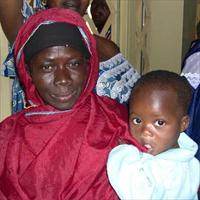BURKINA FASO: Muslim leaders agree to promote family planning

On the eve of World Population Day, Muslim leaders agreed to promote family planning among their followers at a meeting of the country’s principal Islamic organisations in the capital’s main mosque.
“The debates were fruitful. We explained to everybody that Islam was not against family planning and even recommended it”, Maiga Aboubakary, secretary-general of the Burkina Faso Islamic Organisation in Population and Development (RBOIPD), told IRIN.
The leaders have agreed to tour Burkina Faso’s 45 provinces and 13 regions in a “vast awareness-raising campaign” for family planning.
“Religious leaders must sensitise their community in mosques, during religious celebrations, weddings, and funerals on why family planning is so important,” Aboubakary told IRIN.
Siaka Traoré, advocacy and communication officer at the UN Population Fund (UNFPA) in Burkina Faso, said the meeting was a landmark. “We think that Islam has a sensitisation and education role; in that sense the choice of the venue for the meeting is very symbolic.”
According to the last census (2006) Muslims represent just over half of the country’s 14 million people.
According to UNFPA’s Traoré, religious leaders are an important target for family planning advocates because of the privileged role they play in the community. “Muslim leaders, being an instrumental part of the community, have an important role to play in family planning, and that is why we support this meeting between them,” Traoré said.
According to Aboubakary, many people think Islam’s principles stand against family planning, when in fact many of its precepts promote it.
Population growth
Burkina Faso’s population is currently growing at a rate of 3 percent, or by about 341,000 people each year, meaning it has grown overall from 5.6 million in 1975 to today’s 14 million. On average seven children are born to each family, and economists warn that the current five percent economic growth rate will need to reach 7.5 percent to meet the needs of the growing population.
According to the Ministry of Health, just 14 percent of couples regularly use contraception, while a 1994 study (the most recent available), concluded that a third of women aged 15-49 said they needed better family planning.
“Family planning is indispensable to a country’s development, its society and to individuals because it is through family planning that we can better organise family life, better feed and educate children, and give them the healthcare they need”, Traoré told IRIN.
Support is needed to boost the government’s modest national health programme targets which plan to increase coverage of contraceptive by just 3 percent by 2010. More ambitious is its drive to reduce infant mortality rates by 40 percent by 2010. According to the UN Children’s Fund (UNICEF), 122 out of 1,000 children born in Burkina Faso die before they reach their first birthday, and high infant mortality rates are a key factor driving high birth-rates.
Religious leaders did not make a decision on the contraception methods they would promote, leaving it to individuals to decide, according to Aboubakary.
But leaders will push for family planning to be the responsibility of every couple. “We have demanded that every woman should be accompanied by her husband for a family planning visit to a doctor. Women should not go alone because [family planning] must be the decision of a couple,” Aboubakary said.
 Back and Next - Back and Next
Back and Next - Back and Next See Also - See Also
See Also - See Also